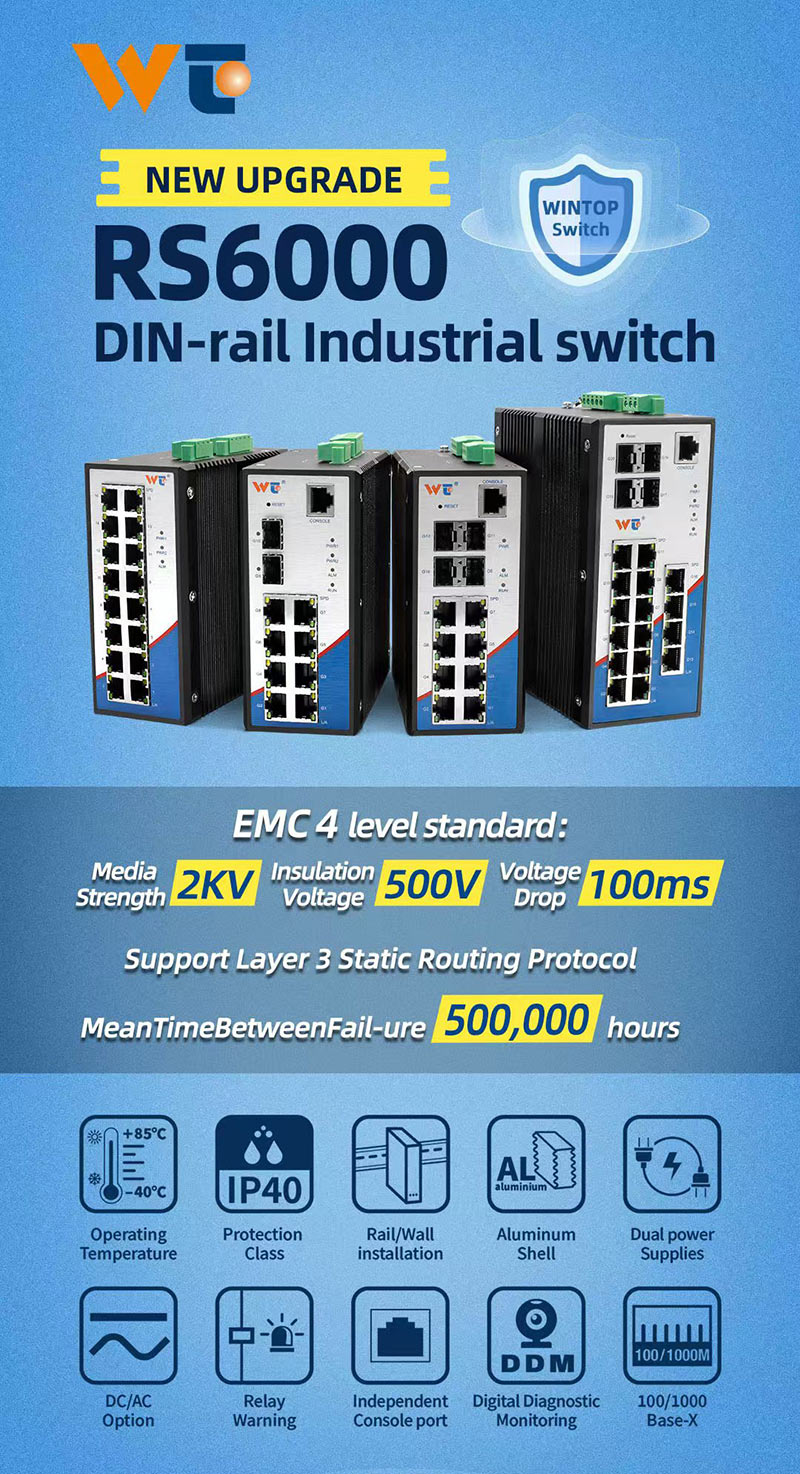Optimizing Data Security in Customs Systems: The Role of Industrial Switches
In an era where data breaches and cyber threats are becoming increasingly sophisticated, ensuring the security of data within customs systems has never been more critical. Customs systems, which handle vast amounts of sensitive information daily, are at the forefront of global trade and national security. Optimizing data security in these systems is not just a technical necessity but a strategic imperative. Industrial switches play a pivotal role in ensuring efficient data transmission and management, forming the backbone of secure and reliable customs operations.
The Importance of Data Security in Customs Systems
Customs systems are responsible for processing and managing data related to the import and export of goods, passenger information, and more. This data is often sensitive, containing details about trade strategies, personal information, and even national security-related data. A breach in these systems can lead to severe consequences, including financial losses, legal ramifications, and compromised national security.
To put this into perspective, consider the 2017 NotPetya cyberattack, which crippled the operations of several global companies and governmental bodies, including customs authorities. The attack highlighted the dire need for robust data security measures within critical infrastructure. Ensuring data security in customs systems is not just about protecting information but also about maintaining the integrity and efficiency of global trade.
Industrial Switches: The Backbone of Secure Data Transmission
Industrial switches are integral to the network infrastructure of customs systems. These devices connect various network segments, enabling seamless data transmission and communication between different components of the customs infrastructure. Unlike regular commercial switches, industrial switches are designed to withstand harsh environments and ensure continuous operation, making them ideal for critical applications like customs systems.
Enhanced Security Features
Industrial switches are equipped with advanced security features that protect against unauthorized access and cyber threats. These features include:
- VLANs (Virtual Local Area Networks): VLANs segment the network into smaller, isolated parts, reducing the risk of unauthorized access and limiting the spread of potential threats.
- Access Control Lists (ACLs): ACLs allow administrators to define rules that control the flow of traffic, ensuring that only authorized devices and users can access certain parts of the network.
- Port Security: This feature restricts access to a switch port based on the MAC address of the device, preventing unauthorized devices from connecting to the network.
Case Study: Enhancing Customs Security with Industrial Switches
Let's consider a case study of a national customs authority that upgraded its network infrastructure with industrial switches. Prior to the upgrade, the customs authority faced frequent network downtimes and security breaches, which disrupted operations and compromised data security. By implementing industrial switches with advanced security features, they achieved:
- Improved Network Stability: The robust design of industrial switches ensured continuous operation even in harsh conditions, reducing downtime and enhancing the reliability of customs operations.
- Enhanced Data Security: The advanced security features of industrial switches, such as VLANs and ACLs, significantly reduced the risk of unauthorized access and cyber threats.
- Efficient Data Management: With improved network performance, data transmission between different components of the customs infrastructure became more efficient, streamlining operations and improving overall productivity.
Efficient Data Management: Streamlining Customs Operations
Efficient data management is crucial for the smooth operation of customs systems. Industrial switches facilitate this by providing high-speed data transmission and low latency, ensuring that data flows seamlessly between different parts of the network. This is particularly important in customs systems, where timely and accurate data processing is essential for decision-making and operational efficiency.
Real-Time Data Processing
In customs systems, real-time data processing is vital for tasks such as risk assessment, cargo tracking, and passenger management. Industrial switches support real-time data processing by providing high bandwidth and low latency connections. This enables customs authorities to:
- Quickly Identify and Mitigate Risks: With real-time data, customs authorities can promptly identify potential threats and take necessary actions to mitigate them.
- Improve Cargo Tracking: Efficient data transmission ensures accurate and timely tracking of cargo, reducing delays and enhancing the efficiency of supply chains.
- Enhance Passenger Management: Real-time data processing facilitates efficient passenger screening and processing, improving security and reducing wait times.
Case Study: Streamlining Customs Operations with Industrial Switches
Consider another case study of a busy international airport that upgraded its customs infrastructure with industrial switches. The airport faced challenges in managing the high volume of data generated by passenger and cargo processing. By implementing industrial switches, they achieved:
- Faster Data Transmission: The high-speed connections provided by industrial switches reduced data transmission times, improving the efficiency of customs operations.
- Improved Risk Management: Real-time data processing enabled the customs authorities to quickly identify and respond to potential threats, enhancing security.
- Enhanced Passenger Experience: Efficient data management reduced processing times at customs checkpoints, improving the overall passenger experience.
Conclusion: The Future of Data Security in Customs Systems
The optimization of data security in customs systems is a continuous process that requires the integration of advanced technologies and robust infrastructure. Industrial switches play a crucial role in this process, providing the necessary security features and ensuring efficient data transmission and management. As cyber threats continue to evolve, the importance of secure and reliable network infrastructure in customs systems cannot be overstated.
By investing in industrial switches and other advanced technologies, customs authorities can enhance the security and efficiency of their operations, safeguarding sensitive information and maintaining the integrity of global trade. The future of customs systems lies in the seamless integration of security and efficiency, and industrial switches are at the heart of this transformation.
